Photographs: Courtesy, Anu Raj/Wikimedia Commons
Giving a corporate look to traditional post offices is good in theory but a raft of regulatory and logistic issues need to be solved before making any structural changes, says Madan Sabnavis, chief economist, CARE ratings.
The idea of converting India Post into Post Bank of India is quite tempting when we look at the basic structure of the postal system in India. There are around 155,000 post offices against around 98,000 bank branches.
There is one post office for every 21.21 square kilometres of area and 7,817 people. These offices have 287 million accounts (2012); in contrast, the entire banking system has 903 million (2013) accounts.
They have 116 million depositors with deposits of Rs 3.96 lakh crore (Rs 3.96 trillion) (the number for banks is not available). If certificates are added, the amount would be Rs 6 lakh crore (Rs 6 trillion).
.....
Why 'Post Bank of India' is not a workable idea
Image: The postal dept in India employees around 4.74 lakh staffPhotographs: Rediff archives
The postal department has 474,000 employees--or an average of three people for every branch. Banks, on the other hand, employ 1.096 million people, with an average of 11 for every branch, we can think of the business correspondent model taking off.
Add to this the fact that postal services are progressively becoming less relevant today as a result of the proliferation of mobile telecom services and private couriers.
The postal material carried fell from 91.63 million in FY 2003 to 63.71 million in FY 2013--only speed post and packets showed an increase.
.....
Why 'Post Bank of India' is not a workable idea
Image: The tradition of posting letters and parcels has fallen drasticallyPhotographs: Reuters
Moreover, the number of postcards, unregistered letters and parcels has fallen dramatically. Therefore, there is a demand for this department to reinvent itself, since it is a matter of time before most of these services become anachronistic.
Thus, the prospect of India Post turning into a bank sounds like a capital idea, especially since we are talking about inclusive banking and around 90 per cent of the country’s post offices are located in rural areas.
There are also moves to computerise around 25,000 of these post offices, which adds weight to this thought process.
...
Why 'Post Bank of India' is not a workable idea
Image: Most experts disagree of transforming India Post into a bankPhotographs: Rediff archives
This is where the good story ends. If one looks at the practical side of this conversion, several questions arise that do not have easy answers. On the technical side, if India Post becomes a bank, who will carry out postal services?
Banking regulation does not allow banks to provide these services and one will have to meander through this regulation. If this bank is allowed to offer postal services, can other banks also offer courier services?
...
Why 'Post Bank of India' is not a workable idea
Image: Huge investment is required to modernise post offices across IndiaPhotographs: Rediff archives
Second, the deposits held by these post offices are of a different type, ones that are used by the governments (Centre and state).
Do we stop these deposits-- and if we do, what happens to the existing deposits with the government? Post offices are merely pass-through vehicles for such money, which has made the rather deprecating term of “being a post office” legendary in corporate jargon.
Third, are we now thinking of creating another public sector bank afresh, considering that it will be new from the start?
Our entire thinking is focused on bringing in more private players and investment in this segment.
The idea of having a new public sector bank sounds out of place and contradictory to the new line of thinking.
.....
Why 'Post Bank of India' is not a workable idea
Image: Transforming post offices into modern-day banks involves technical issuesPhotographs: Rediff archives
On the operational side, there are even more interesting puzzles. First, the 474,000-strong workforce consists of 263,000, and another 203,000 gazetted Group C staff. The so-called office cadre would not be more than 7,000.
Most of the others would be barely literate and could classify and stamp documents but may not be expected to go beyond that.
In fact, they would more likely be conversant with only the regional language.
Can they actually pick up banking and go through the normal training courses and exams that bankers are expected to undertake?
....
Why 'Post Bank of India' is not a workable idea
Image: Post offices are not considered efficient as compared to online transactionsPhotographs: Rediff archives
Second, none of the staff members would know how to garner and use deposits.
At present, customers come and deposit money and the postal official really does not care if it happens.
The quality of service is quite mediocre in a monopoly-cum-government set-up that lacks incentive to perform and where the “baksheesh” culture dominates for many transactions.
A metamorphosis is needed as far as mindsets and culture are concerned--it is a challenge and costs money.
If we replace the entire staff with trained bankers, what will happen to the existing ones?
....
Why 'Post Bank of India' is not a workable idea
Image: Skill set of exisiting staff of Post India needs to be upgradedPhotographs: Rediff archives
Third, specialised functions, such as treasury, lending, investment and balance sheet management, require skill sets that even the existing gazetted officials do not possess.
This will mean wholesale recruitment where the logistics will be mind-boggling.
The only way out is if it becomes a payments bank the recommendation in the Reserve Bank of India’s (RBI’s) report on inclusion. But then, it is already performing this function and need not be converted into a new bank.
......
Why 'Post Bank of India' is not a workable idea
Image: Post offices are in demand only in rural IndiaPhotographs: Rediff archives
Fourth, most of these post offices in rural India are too small, probably just a little room where stamps and letters are dispensed and letters picked up and distributed.
They may not be stand-alone branches for a bank. Fifth, starting the business will be complex, considering that the balance sheet has a size of Rs 6 lakh crore on the liabilities side, with no assets as such, with these funds being provided to the government.
Based on just the deposits, the size of this department would be as large as that of Bank of India or Canara Bank. How does one reckon capital adequacy when there are only liabilities and no assets?
....
Why 'Post Bank of India' is not a workable idea
Image: There are questions raised about private participation in modernising post officesPhotographs: Rediff archives
At Rs 6 lakh crore (Rs 6 trillion) and with a capital adequacy ratio of 10 per cent, the government will have to put in Rs 60,000 crore (Rs 600 billion). Where will this money come from?
Once we put all these considerations together, it seems an India Post Bank will probably not work. Several regulatory and logistic issues have to be surmounted.
One line of thought is that if the infrastructure is the premise on which post offices can become banks, then these post offices should ideally be leased wherever possible to banks on rent-- which will help the department cut its losses.
....
Why 'Post Bank of India' is not a workable idea
Image: India post is a loss-making entityPhotographs: Rediff archives
Moreover, this will get us out of our predilection to create new structures instead of integrating the existing ones with the present system.
In FY 2012, India Post reported a loss of Rs 5,805 crore ( Rs 58 billion). In fact, the new banks, which are expected to allocate at least 25 per cent of their new branches in unbanked rural areas, could leverage these structures so that it becomes a win-win situation for banks, the RBI and post offices.

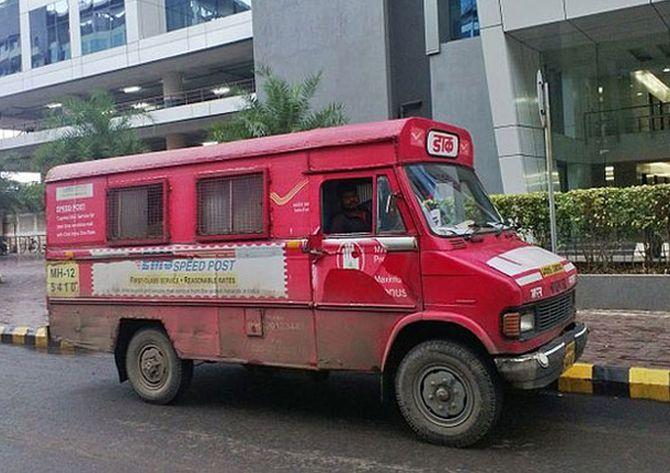

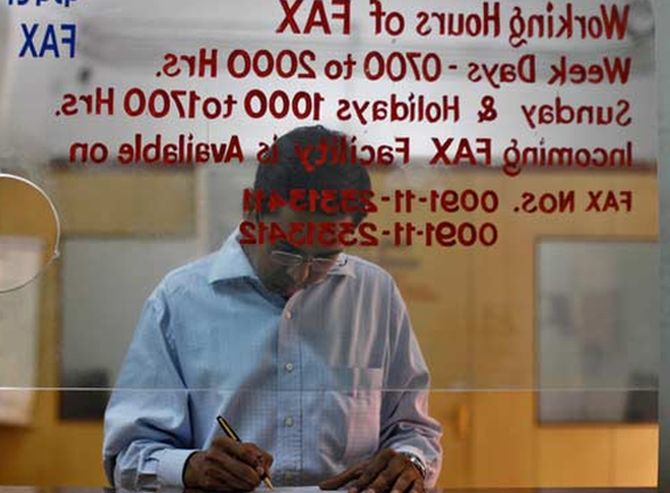
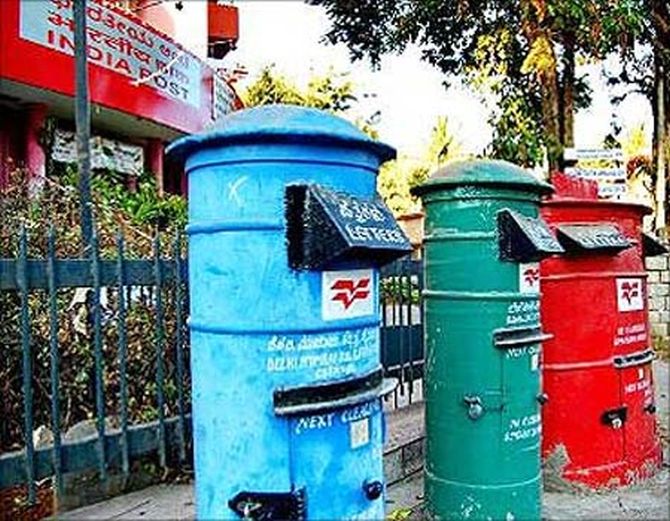
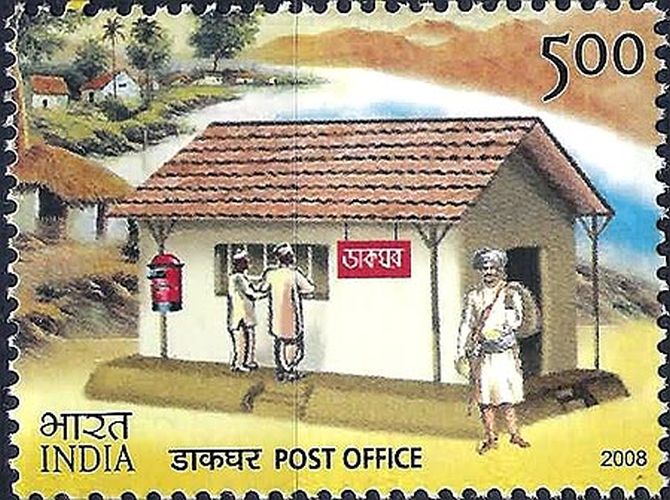
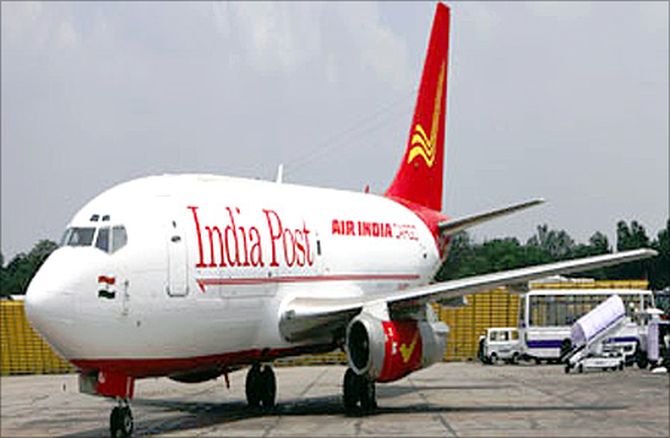
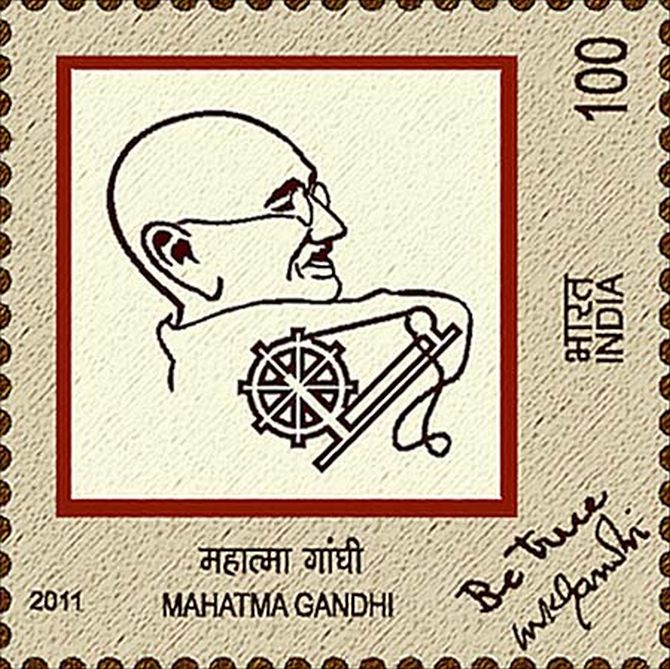

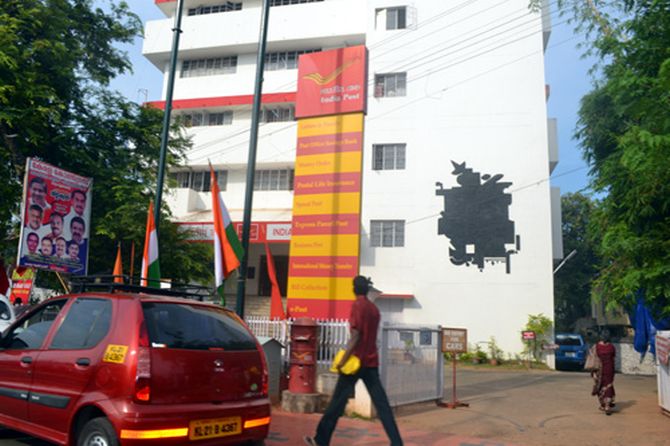



article